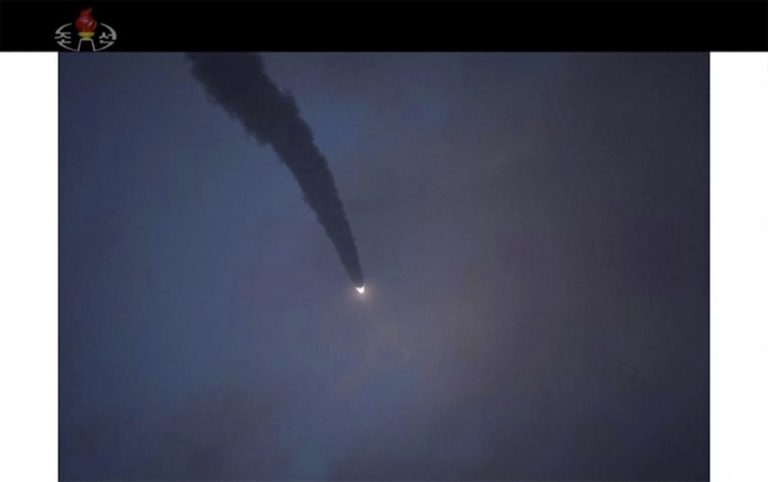North Korea fired unidentified projectiles twice Friday into the sea off its eastern coast in its third weapons tests in just over a week, South Korea’s military said.
The increased testing activity is seen as brinkmanship aimed at increasing pressure on Seoul and Washington over the stalled nuclear negotiations. North Korea also has expressed frustration at planned U.S.-South Korea military exercises, and experts say its weapons displays could intensify in the coming months if progress on the nuclear negotiations isn’t made.
By test-firing weapons that directly threaten South Korea but not the U.S. mainland or its Pacific territories, North Korea also appears to be dialing up pressure on Seoul and testing how far Washington will tolerate its bellicosity without actually causing the nuclear negotiations to collapse, analysts say.
Seoul’s Joint Chiefs of Staff said the launches were conducted at 2:59 a.m. and 3:23 a.m. from an eastern coastal area but did not immediately confirm how many projectiles were fired or how far they flew. An official from the JCS, who didn’t want to be named, citing office rules, said more analysis would be required to determine whether the projectiles were ballistic missiles or rocket artillery.
The North fired short-range ballistic missiles on July 25 and conducted what it described as a test firing of a new multiple rocket launcher system on Wednesday.
Amid the stalemate in nuclear negotiations with the United States, North Korea has significantly slowed diplomatic activity with the South while demanding Seoul turn away from Washington and proceed with joint economic projects that have been held back by U.S.-led sanctions against the North.
The North’s new launches came as the United Kingdom, France and Germany — following a closed U.N. Security Council briefing — condemned the North’s recent ballistic activity as violations of U.N. sanctions and urged Pyongyang to engage in “meaningful negotiations” with the United States on eliminating its nuclear weapons.
The three countries also urged North Korea “to take concrete steps toward its complete, verifiable and irreversible denuclearization” and said international sanctions should remain in place and be fully enforced until its nuclear and ballistic missile programs are dismantled.
U.S. officials have downplayed the threat of the launches to the United States and its allies. Japan’s Defense Ministry said in a statement it was still analyzing Friday’s firings but there was no immediate risk to Japan’s security.
On Thursday, North Korea’s state media said leader Kim Jong Un supervised the first test firing of a new multiple rocket launcher system he said would soon serve a “main role” in his military’s land combat operations.
South Korea’s Joint Chiefs of Staff had assessed the activity Wednesday as a short-range ballistic missile launch, saying the missiles flew about 250 kilometers (155 miles), a range that would be enough to cover the metropolitan region surrounding capital Seoul, where about half of South Koreans live, and a major U.S. military base just south of the city.
On July 25, North Korea fired two short-range ballistic missiles that Seoul officials said flew 600 kilometers (370 miles) and as high as 50 kilometers (30 miles) before landing in the sea.
North Korea said those tests were designed to deliver a “solemn warning” to South Korea over its purchase of high-tech, U.S.-made fighter jets and the planned military drills, which Pyongyang calls an invasion rehearsal. The North also tested short-range missiles on May 4 and 9.
Attending an Asian security conference in Bangkok, U.S. Secretary of State Mike Pompeo said Thursday the Trump administration remains ready to resume talks with North Korea now, but said a meeting this week would be unlikely.
(AP)










